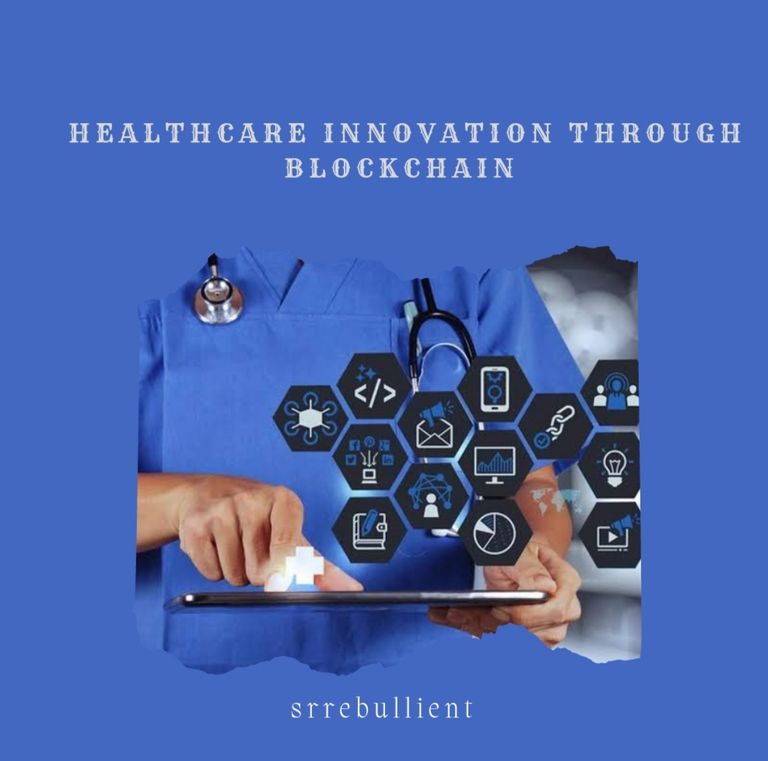
Hello everyone and welcome to my blog.
The emergence of blockchain has really improved various aspect of life such as finance through cryptocurrencies. It also has good potential of enhancing other aspect of human activities such as education, healthsector etc. Here we will be looking at the possible benefits of blockchain on the healthcare sector.

Some of the characteristics that enable bitcoin blockchains to operate as a secure record of financial transactions are also suitable to medical data storage. Because most blockchains are decentralised systems that employ encryption to store and secure files, disrupting or changing the data without the agreement of the other network users is exceedingly difficult. As a result, one of the characteristics that allows for the establishment of incorruptible databases for medical records is immutability.
Furthermore, blockchains' peer-to-peer architecture allows all copies of a patient's data to be synchronized with one another when modifications are made, even if they are stored on different computers. In fact, each network node has a copy of the complete blockchain and communicates with one another on a regular basis to ensure that data is accurate and up to date. As a result, decentralization and data dispersion are crucial.
It is important to note that while blockchains are distributed, they are not always decentralized (in terms of governance). Because decentralization is not a binary concept, distributed systems can have varying degrees of decentralization depending on how nodes are distributed and the overall architecture. Blockchains are frequently developed as private networks in the healthcare industry, as opposed to public networks that are typically employed as cryptocurrency ledgers. Private blockchains require permission and are managed by a smaller number of nodes. While anyone can join and contribute to the development of a public blockchain, private blockchains require permission and are managed by a smaller number of nodes.

- Security
As previously indicated, one of the most essential applications of blockchain technology in the healthcare industry is the creation of a secure and consistent peer-to-peer (distributed) database. Data corruption should no longer be an issue thanks to the immutability of blockchains. Thousands of patients' medical data can be efficiently registered and tracked using blockchain technology.
Unlike traditional databases, which rely on a centralized server, a distributed system allows for more secure data sharing while also reducing the administrative expenditures that the existing system imposes. Blockchains are less prone to technical faults and external threats because they are decentralized. Hospitals, which are frequently subjected to hacker infiltration and ransomware attacks, may find the security afforded by blockchain networks particularly beneficial.
- Interoperability
Another benefit of blockchain-based medical records is that they improve interoperability across clinics, hospitals, and other health-care providers. Organizations typically have trouble sharing documents because of technological variations in data storage systems. Blockchains, on the other hand, can address this issue by allowing authorized parties to access a centralized database of patient files or even records of pharmaceutical distribution. Instead of attempting to communicate with each other's internal storage, service providers can collaborate on a single one.
- Transparency
Blockchain technologies may boost individuals' access to and transparency over their own health information, in addition to streamlining the process of record exchange. In some cases, seeking validation of changes made to patients' documents can help assure the correctness of the records, and if done correctly, this type of verification can give an extra layer of protection against both human mistake and malicious fabrication.
- Fruad protection
Medical insurance fraud is estimated to cost the American healthcare system $68 billion each year. Blockchain could help combat this problem. Immutable information maintained on blockchains and shared with an insurance provider can avoid some of the most prevalent types of fraud, such as invoicing for operations that were never performed and charging for services that were never provided.
- Clinical trial recruiting
Another application of blockchain in healthcare is to enhance the quality and efficacy of clinical trials. Trial recruiters could utilize medical data stored on blockchains to identify people who would benefit from the medications under study. Because many patients are unaware of relevant medication trials and hence are not offered the opportunity to participate in them, such a recruitment mechanism might significantly boost clinical trial enrollment. Blockchains can be used to protect the integrity of data being collected while trials are being carried out.

In as much as the blockchain technology has the potential of offering a widespread of advantages in the healthcare sector, there are still series of hurdles needed for the blockchain to overcome before it can be effectively used in the healthcare sector.
- Compliance
In the United States, for instance, healthcare organizations interested in implementing blockchain technology must adhere to existing data rules, such as the Health Insurance Portability and Accountability Act of 1996. (HIPAA). HIPAA is a federal law that establishes rules for the storage, distribution, and protection of personal health information in the healthcare industry. To be entirely compliant, US-based businesses would need to implement specialized blockchain record systems with greater privacy protections and restricted access.
- Cost and Speed
On the provider side, blockchain solutions are likely to need a significant upfront investment, which will obstruct widespread adoption. Furthermore, in terms of transactions per second, distributed systems are far slower than centralized ones. When compared to centralized solutions, a large blockchain network with many nodes will almost certainly take longer to transmit and synchronize data. This is especially concerning for large databases that may someday need to store and track millions of patient records. Large picture files, such computed tomography or MRI images, would exacerbate the difficulty.

The blockchain has theorically shown to have numerous benefits in the healthcare sector even though there are still some few theorical setbacks it might experience in the process of adoption.
With an increasing rate of blockchain adoption, it will only be a matter of time before it gets properly integrated into the healthcare sector.